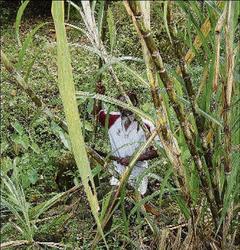

Molasses and 'wet sugar' from sugar cane are highly nutritious and excellent for the nerves. - Rosemary Parkinson/Gleaner Writer
Christopher Columbus introduced the sugar cane to Jamaica in the late 15th century. It became the most sought after plant in the West Indies employing over 50,000 workers in Jamaica.
There were many large sugar estates here. The Mona campus of the University of the West Indies occupies lands that were part of the two large estates, Mona and Papine, consisting of over 1,000 acres. The Hope River runs through the property and it was not as susceptible to drought as some of the other plantations, yet the remnants of the aqueduct suggest that drought was a problem.
In 1871, the government established the Hope Botanical Garden after acquiring a part of the Hope Estate. Today, the lands now occupy government offices and laboratories such as the Scientific Research Council, Ministry of Agriculture and Lands, The Bauxite Institute and the University of Technology.
http://wwwchem.uwimona.edu.jm:1104/lectures/sugar.html
Sugarcane's nutritional benefits
It is noted that in former years 'the broad dental arches of our elders were perfect and the beautiful, decay-free teeth of the natives and children were in excellent condition' (http://www.colema
boards.com/sugarcane.htm).
Sugar cane provided strength and endurance to manage the mountain terrains as well as a digestant especially on hungry stomachs.
Today the nutritional benefits of sugarcane have been identified as carbohydrate (sugar), grass nutrients, potassium, enzymes, chlorophyll, albuminoid, minerals and trace elements.
Molasses and 'wet sugar' are said to be highly nutritious. They were considered by the elders of the time as excellent for the nerves.
It is reported that sugar cane offers cholesterol treatment. A natural product derived from sugar cane policosanol is used for reduction of the LDL (bad cholesterol); it is imported from Cuba and sold in pharmacies.
Rum is made from the sugar cane by yeast fermentation. The process of ageing and colour is quite complex. White rum continues to be the most popular type of rum among 'the masses' as it is used medicinally and for baking Christmas cakes and puddings.
Dr. Charles Kettering, a famed scientist said, "When we have learned why grass is green, we shall have discovered the secret of life".
Dr. Diane Robertson is a pharmacist and recipient of an honorary doctorate in complementary medicine for her work in herbs; email: yourhealth@gleanerjm.com.We are still celebrating the anniversaries of our emancipation and independence, therefore I dedicate the sugar cane (Saccharum officinale) as the herb for the month of August.
"Why did all creating Nature
Make the plant for which we toil?
Sighs must fan it tears must water it
Sweat of ours must dress the soil.
Think ye Masters, iron-hearted
Lolling at your jovial Boards,
Think how many Backs have smarted
For the sweets your cane affords?"
- Quote attributed to Cowper's Negro's Complaint. From a 1791 pamphlet published in an attempt to get the people of Great Britain to abstain from West Indian sugar and rum so as to abolish the slave trade.

